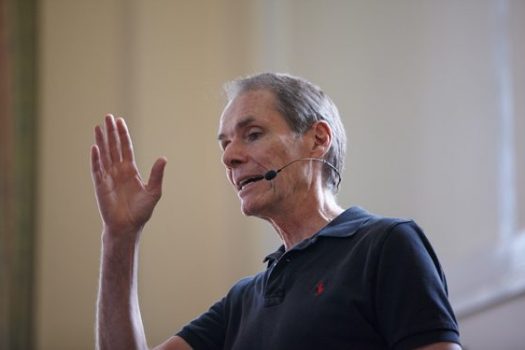Trainings
Conscious Leadership and Resilience
One of the most important success factors for entrepreneurs and their ventures is their capacity for resilience.
Resilience is the ability of individuals, teams and organizations to withstand or recover quickly from difficult conditions and to maintain a sense of equilibrium with respect to both success and adversity. When people are challenged, they can sometimes rise to the occasion. But if the challenge seems too great, they may “crash and burn.” This is where the skills of leadership are an essential resource. Leadership is about ensuring that people (including yourself) are prepared to be their best, meet challenges, overcome obstacles and reach critical goals.
It is said that things are always changing, but not always progressing. During a time of adversity, many challenges will present themselves such as meeting the fear of the unknown and the unfamiliar, dealing with loss, and a general sense of vulnerability. These can plunge us into unhelpful survival strategies – attack, escape or rigidity (fight, flight, freeze) — and may result in some form of regression, inertia, ambivalence, confusion or conflict.
In order to progress through change, it is important to cultivate qualities such as flexibility and stability, balance, connection and the ability to “let go.” It is easy to stay balanced when life moves smoothly, but in order to maintain equilibrium during turbulent times, one must have developed these qualities until they are “in the muscle”. Preparing for change requires practice.
Crisis, transition and transformation are three key dynamics entrepreneurs and business leaders need to learn to address during times of upheaval and adversity. In this program you will learn roadmaps and practices, and develop resources and tools designed to help manage various stages of adversity and profound change effectively.
Conscious leadership involves building your venture from a state of centered presence, accessing multiple intelligences and living your highest values in service to a larger purpose to the benefit of all stakeholders. Thus, conscious leadership involves being:
- Authentic
- Emotionally intelligent
- Purposive
- Responsible
Achieving competence in conscious leadership involves important practices such as:
- Formulating and communicating a clear and meaningful vision for the future.
- Focusing on higher purpose.
- Influencing through inspiration.
- Balancing self-interest and the common good, in themselves and others.
- Respecting and integrating multiple perspectives.
- Leading by example (walking your talk).
- Exercising mindful self-leadership and reflecting thoughtfully on the lessons gained from experience.








